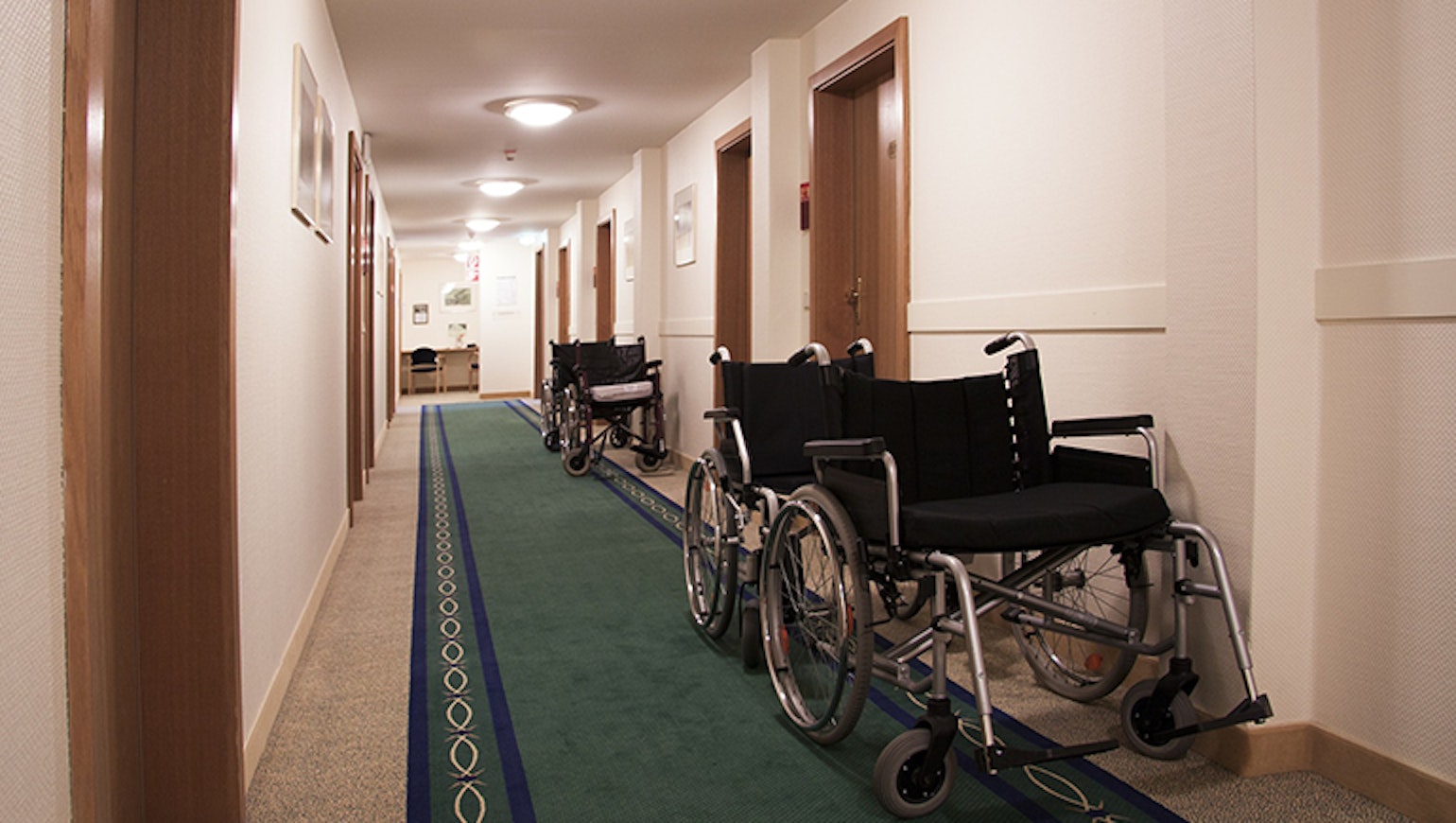The difference between domiciliary and residential care
Domiciliary and residential care share similarities, but if you’re thinking about setting up a domiciliary care business or weighing up care options for a loved one, what are the differences and advantages of each?
16.06.25
By Alan Boswell Group

We explore what each type of care offers and the types of care insurance essential for business owners. For families, knowing a care home or service is covered can provide peace of mind that there is recourse should the unexpected happen.
What is domiciliary care?
Domiciliary care is provided in a person’s home, also known as homecare. Home carers (or private carers) usually work for agencies, and the care they provide is flexible depending on how much support is needed. For example, someone might need care for a few weeks after surgery or may need care on a long-term basis.
Home carers can help with a range of activities, including getting up, washed and dressed in the mornings, help with shopping, preparing meals and drinks or supporting people when they leave the house. Live-in carers are also included within the domiciliary care category.
Is home help the same as domiciliary care?
Home help isn’t quite the same. Domiciliary care providers typically support people with personal tasks (going to the toilet, getting washed and dressed and preparing meals).
Home help providers generally help with domestic tasks, such as cleaning, laundry, or gardening.
How much does domiciliary care cost?
Cost depends on the level of care needed but can range between £15 and £30 per hour. Your location can also affect what you pay.
What is residential care?
Residential care is provided by a care home. For anyone looking at residential care, it means moving out of their own home. With this in mind, it’s typically an option chosen by people who need more help and would otherwise struggle to live alone.
In addition to residential care, some care homes provide nursing and dementia care. Residents with more complex needs often live in smaller units within larger residential homes where they can be better supported. Most care homes will employ qualified nurses and have a clinical team to oversee medical needs.
Depending on the care home and individual needs, people can receive as much support as they want, while being encouraged to stay independent.
How much do care homes cost?
Cost can vary considerably depending on the home you choose, where you live, and the type of support needed. In some cases, your local council may be able to help with part or all of the cost.
According to the NHS, the average cost of residential care is £600 per week. A nursing home (or residential home with nursing provision) costs an average of £800 per week.
Bear in mind that some luxury care homes can charge thousands of pounds per week.
What are the key differences between domiciliary care and residential care?
We’ve put together a quick visual summary to help you see the differences at a glance.
Domiciliary and Residential care: key differences
|
Domiciliary care |
Residential care |
|
|---|---|---|
Living environment |
In the person’s own home |
In a care home |
Level of independence |
High level of independence |
Depends on the home and care needed, but usually set mealtimes with a more structured day |
Social interaction |
Limited to carer and the person’s usual network |
More opportunities to meet new people and community groups |
Type of care provided |
Varies according to need, can range from personal to medical care |
Homes should take a person-centred approach, so will also vary according to need |
Cost |
More flexible as depends on the level of support needed |
Fixed monthly fees, but typically more expensive than domiciliary care |
What insurance do domiciliary care providers need?
Domiciliary care providers need similar types of insurance to residential care homes, but there are some key differences, for example, home carers won’t need property insurance.
Features to consider include:
Public liability
This covers costs if a member of the public is injured or has their property damaged because of your business activities. An example could be if a home carer left some equipment on the pavement while unloading their car, causing someone to trip.
Employers’ liability
If you own a care home or domiciliary care agency and employ staff, you’ll need employers’ liability by law. It compensates employees if they’re injured or become ill because of work.
Professional liability
Covers you if a decision has caused injury or damage, for example, if a staff member accidentally gave someone the wrong medication.
Legal expenses
Pays for legal fees that aren’t covered by other aspects of the policy, for example, if there are contractual issues or tax disputes.
FAQs
Care is provided in the person’s own home
Supports greater independence
Flexible care tailored to individual needs
Generally cheaper than residential care
Support for medical or complex needs
Can provide increased social interaction
Nutritionally balanced meals that also cater for modified diets
Person-centred care with support to stay as independent as possible
This very much depends on the type of care that’s needed. If you’re thinking about care for a loved one, remember to involve them in the decision-making process. If a medical professional has advised that nursing care is necessary, a care home may be the only safe environment available.
What you need will depend on the services you provide. If you employ any members of staff, you’ll need employers’ liability by law. Other insurance products you can consider include public liability, professional liability, and legal expenses.
You can see if you qualify for financial help by asking your local council for a needs assessment.
Choosing the best policy for the right care
Having the right insurance can give you the confidence and peace of mind to focus on care provision. If you are employing people, it also a legal requirement. To find out more about protecting your business and your employees, speak to one of our experts on 01603 218000.
Send an enquiry
Related guides and insights

Comprehensive guide to care home insurance: protecting your business
If you own or manage a care home, ensure you have all your insurance liabilities covered with our comprehensive guide.

Guide to Care Quality Commission assessments
The Care Quality Commission inspects care homes to ensure they meet quality and safety standards. To help you prepare, we look at CQC requirements, what’s involved, and how the result affects your care home insurance premium.

Guide to setting up a care home
Setting up a care home comes with strict rules. We look at your obligations and why care home insurance is an essential part of registration.

Managing resident safety risks in care homes
Care home insurance can help mitigate the financial impact of accidents and mistakes, but avoiding unnecessary risks in the first place should be a priority. We look at how to manage resident safety and implement effective risk assessments.

Winter contingency plans for care homes
To manage risk in your care home, we look at what to consider when it comes to setting out effective winter contingency plans, and how care home insurance can help cover the cost if the unexpected does happen.
